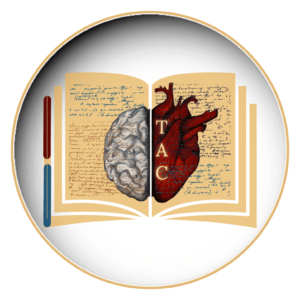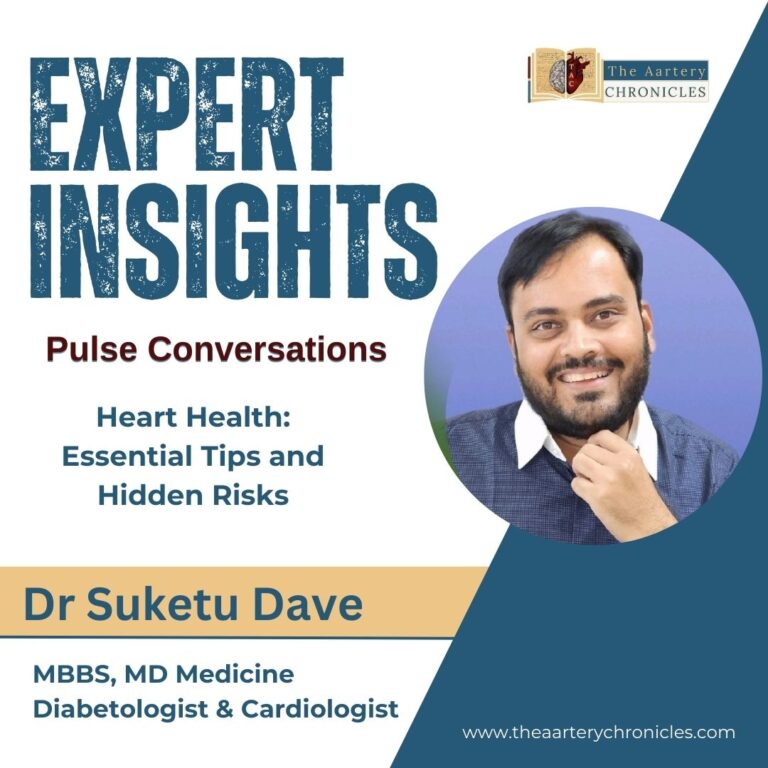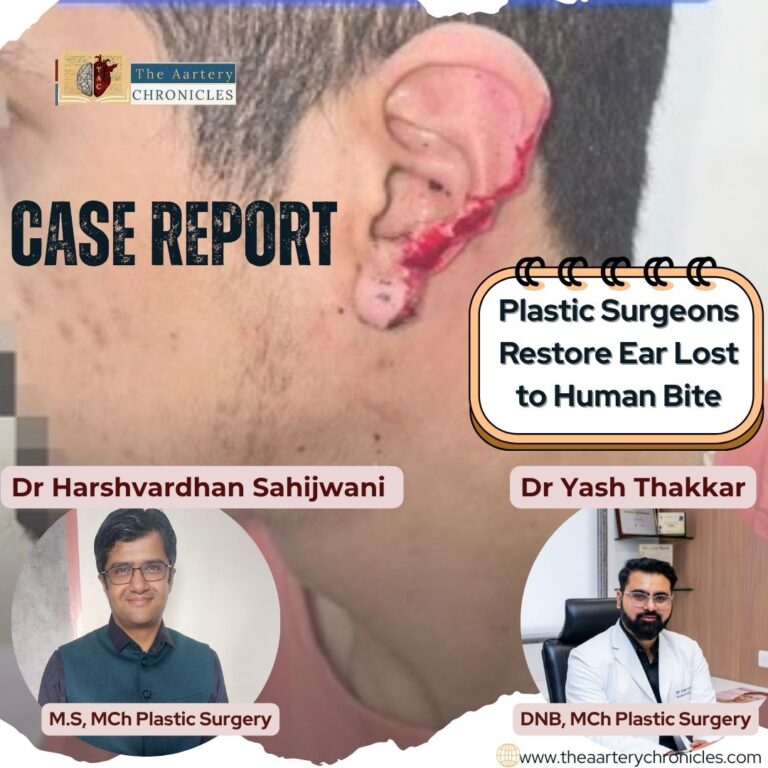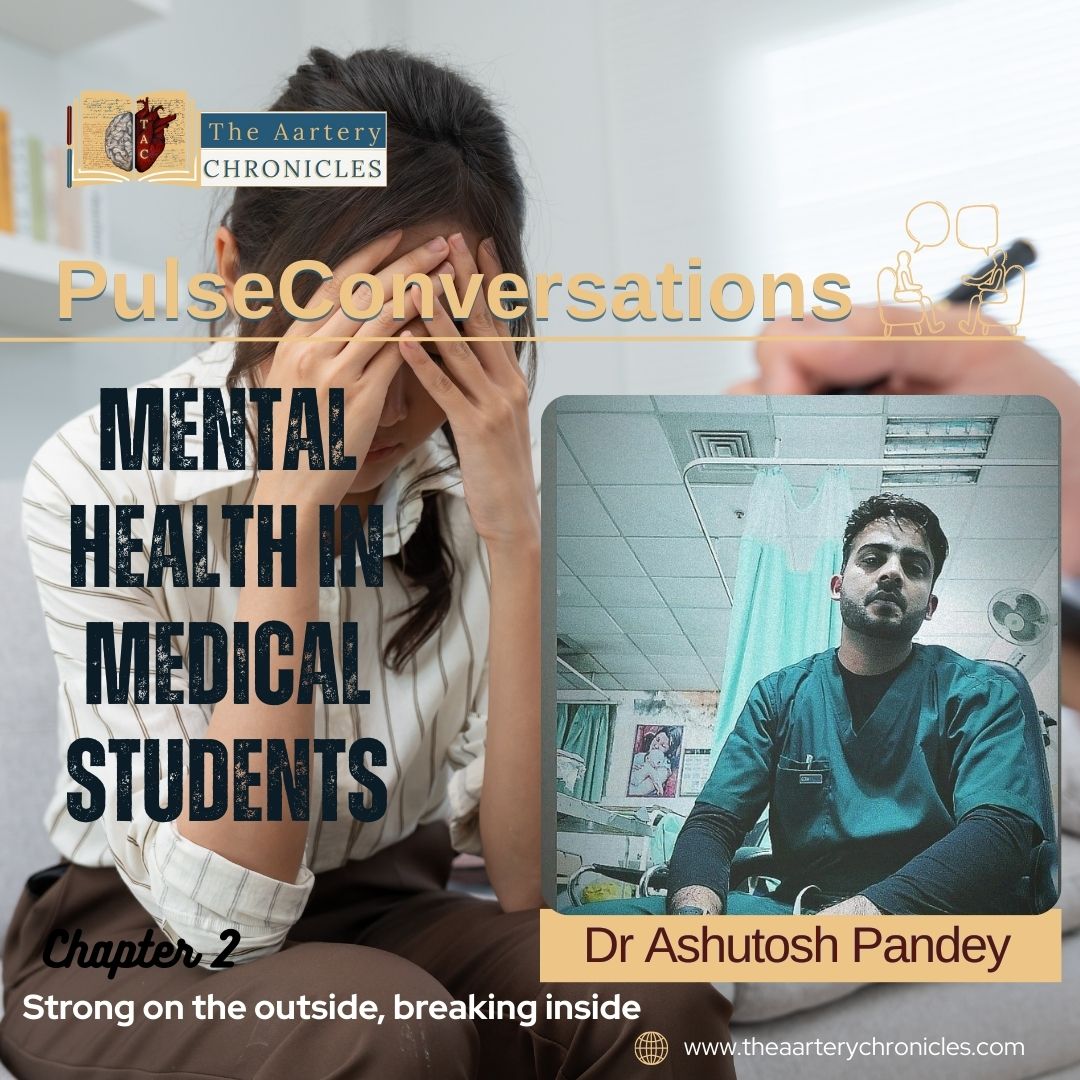
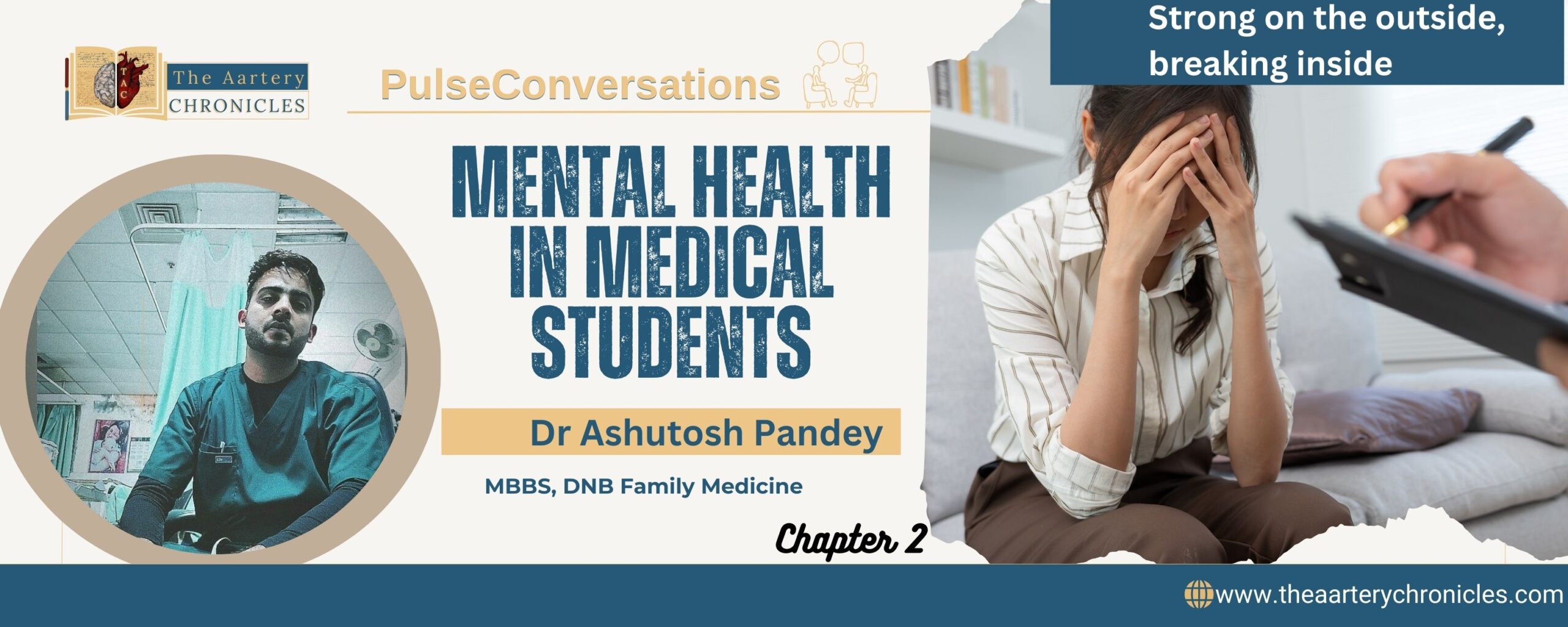
Talk, Share, Heal: A Guide by an Expert for Medical Students
Background
Struggling with mental health is not a weakness. Whether it’s a parent, friend, mentor, or professional, someone is ready to listen. Speaking up can protect your privacy, safeguard your dignity, and remind you that your life matters far more than any exam or failure. Stay connected, and check in with yourself every day.
In continuation of the conversation with Dr. Ashutosh Pandey, he shares valuable insights on mental health and emphasises: don’t stay silent — reach out to friends, mentors, or professionals for support.
Meet the Expert
Dr. Ashutosh Pandey
- MBBS – North East Indira Gandhi Regional Institute of Health and Medical Sciences (NEIGRIHMS), Shillong, Meghalaya (Batch: 2013)
- DNB Family Medicine – BPS Government Medical College for Women, Sonipat, Haryana (Batch: 2021)
Currently completing his post-graduation in Family Medicine, Dr. Pandey has witnessed firsthand the immense psychological pressure faced by medical students in India.
In this interview with Dr. Anjali and Priya Bairagi from “The Aartery Chronicles“, he opens up about breaking stigma, encouraging conversations, and building a culture of care around mental health.
Dr. Anjali: Sir, in preventive measures, can guidelines be provided to mentors and professors? Since students look up to them, shouldn’t there be structured training on how to guide students sensitively?
Dr. Pandey: Yes, professors are trained through NMC or MCI programs, but much depends on individual institutes and teachers. In my institute, our seniors treated us like family. They guided us academically and personally, sometimes even taking us out to refresh.
For example, my HOD, Dr. Ritu Pannabarua, guided me when my anatomy preparation was weak. She told me to revise daily, and by final year, I had mastered it. Without her guidance, I might have failed and gone into depression.
This shows the importance of mentors. Whether senior students, professors, or HODs, a mentor can prevent students from falling into harmful habits like alcohol or tobacco and guide them in life decisions. Every student should have a mentor
Dr. Anjali: Sir, are there any research programs or initiatives for promoting student mental health?
Dr. Pandey: Yes. The Indian government has started a national mental health program through NHM, focusing especially on adolescents. It is included in pediatric, psychiatric, and community medicine curricula.
At the national level, awareness and research are being carried out, especially since student suicide rates are rising. But beyond formal programs, what students need most is to be heard, understood, and treated with empathy, keeping in mind their personal, social, and economic backgrounds.
Priya Bairagi: Sir, what kind of mental health cases do you usually see among students?
Dr. Pandey: The most common are anxiety disorders. Students preparing for presentations or exams come with
- Palpitations
- Breathlessness
- Chest pain
- Fear
We also see depressive cases of students skipping classes or struggling after a breakup.
Most of these we refer for counseling, while severe cases go to psychiatrists. Adjustment disorders and anxiety are most common. Long-term depression is less frequent in students.
What students need most is to be heard, understood, and treated with empathy, keeping in mind their personal, social, and economic backgrounds.
Dr Ashutosh Pandey Tweet
Dr. Anjali: You mentioned stigma. What more can be done to break it?
Dr. Pandey: Awareness must be created at multiple levels:
- College
- Society
- Media
Movies, campaigns, and social media can normalise mental health consultations.
People need to understand that seeing a psychiatrist doesn’t mean being “mad.” Simple conditions like OCD, anxiety, or depression are treatable. Everyone, from teachers to doctors to friends — should encourage counseling when needed.
Priya Bairagi: Dr Ashutosh Sir, how is our mental health related to our physical health?
Dr. Pandey: They’re directly connected. Exercise, for example, releases endorphins (happy hormones):
- Reduces blood pressure
- Strengthens the heart, lungs, and brain
This helps the body cope with stress.
Without exercise, stress can worsen conditions like hypertension. On the other hand, positive habits accumulate over time and lead to resilience.
There is nothing wrong with needing help. Every human does, even doctors and teachers.
Dr Ashutosh Pandey Tweet
Dr. Anjali: You also emphasised diet. Are there foods that help improve mood?
Dr. Pandey: Yes, fibre-rich foods and whole fruits (like soaked chickpeas)
- Improve digestion
- Prevent blood sugar spikes
- Release happy hormones
On the other hand, processed juices and sugary foods raise stress levels.
Priya: Sir, is hypertension directly connected to mental health?
Dr. Pandey: Yes. Stress and hypertension are like twin brothers. Stress raises blood pressure, and hypertension worsens stress. Together, they increase the risk of heart disease.
But exercise and outdoor activities reduce both. That’s why parents should encourage children from a young age to balance studies with play and cardio activities like cricket or football.
Dr. Anjali: Sir, one last question. You mentioned anxiety and generalised anxiety disorder (GAD). What’s the difference, and when should we seek medical help?
Dr. Pandey: Occasional anxiety is normal, like feeling nervous before a presentation. But if symptoms occur daily and affect routine life, that’s when GAD is suspected, like
- Palpitations
- Loss of sleep
- Loss of appetite
- Bowel issues
In such cases, medical help is necessary. Counselling, and sometimes medication, helps restore balance.
A Message for All Students — Dr. Ashutosh Pandey
Life as a student isn’t just about studying. Take care of your mind, body, and emotions. Do something outside the books
- Play a sport
- Go for a walk
- Spend time with friends
Indoor and outdoor activities together keep you healthy. If hostel food isn’t nutritious, raise it with the warden. Eat right, exercise, manage time smartly, and don’t hesitate to seek help.
If you’re going through something mentally, please don’t keep it to yourself. Speak up. If you can’t talk to your parents, reach out to a friend, a mentor, or the college counsellor. Psychiatrists and professionals are there for you, and they care more than you think. There is nothing wrong with needing help. Every human does, even doctors and teachers. You might think no one will understand, but they will. Professors, doctors, and even strangers often step in when you speak up.
Your privacy matters. Good professionals will always respect that, and hospitals or clinics make sure students are given space and dignity. Your life is important, far more than any exam, degree, or failure. Your parents, friends, and loved ones care more than you realise. Stay connected. Talk to at least one person every day. If you live alone, keep in touch with at least two people. Don’t isolate yourself. And just like you track attendance or assignments, check in with yourself daily: How am I really feeling today?
Dr Ashutosh Pandey Tweet
We thank Dr. Ashutosh Pandey for giving his time and sharing invaluable insights. His expertise has significantly deepened our understanding of Mental health in Medical Students.
